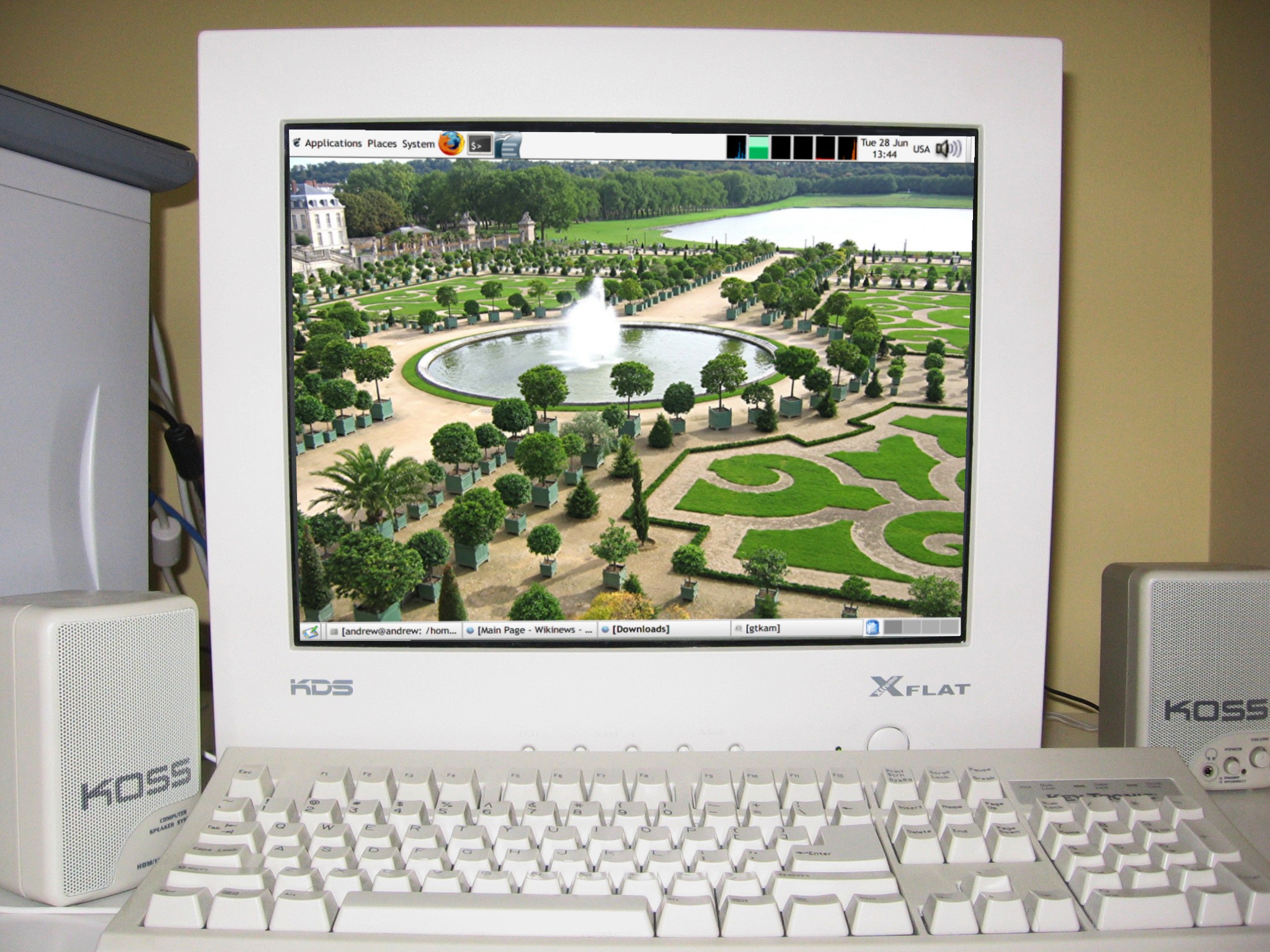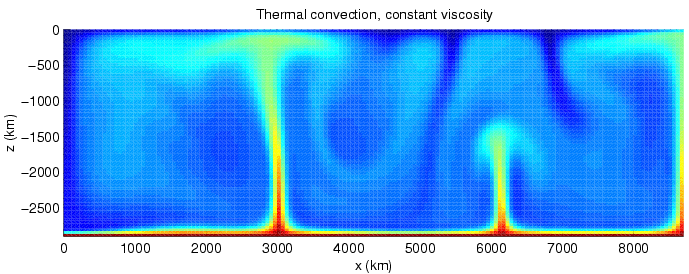|
Effectiveness
Effectiveness is the capability of producing a desired result or the ability to produce desired output. When something is deemed effective, it means it has an intended or expected outcome, or produces a deep, vivid impression. Etymology The origin of the word "effective" stems from the Latin word effectīvus, which means creative, productive or effective. It surfaced in Middle English between 1300 and 1400 A.D. Usage In mathematics and logic, ''effective'' is used to describe metalogical methods that fit the criteria of an effective procedure. In group theory, a group element acts ''effectively'' (or ''faithfully'') on a point, if that point is not fixed by the action. In physics, an effective theory is, similar to a phenomenological theory, a framework intended to explain certain (observed) effects without the claim that the theory correctly models the underlying (unobserved) processes. In heat transfer, ''effectiveness'' is a measure of the performance of a heat exchan ... [...More Info...] [...Related Items...] OR: [Wikipedia] [Google] [Baidu] |
Combat Effectiveness
Combat effectiveness is the capacity or performance of a military force to succeed in undertaking an operation, mission or objective. Determining optimal combat effectiveness is crucial in the armed forces, whether they are deployed on land, air or sea. Combat effectiveness is an aspect of military effectiveness and can be attributed to the strength of combat support including the quality and quantity of logistics, weapons and equipment as well as military tactics, the psychological states of soldiers, level of influence of leaders, skill and motivation that can arise from nationalism to survival are all capable of contributing to success on the battlefield. __TOC__ Quantitative measures Philip Hayward proposes a measure for combat effectiveness, concentrating on the "probability of success" in a combat environmentTuunainen 2016, p. 26 in relation to factors such as manpower and military stratagem. Combat effectiveness can be represented as a real and continuous function, F( ... [...More Info...] [...Related Items...] OR: [Wikipedia] [Google] [Baidu] |
NTU Method
The Number of Transfer Units (NTU) Method is used to calculate the rate of heat transfer in heat exchangers (especially counter current exchangers) when there is insufficient information to calculate the Log-Mean Temperature Difference (LMTD). In heat exchanger analysis, if the fluid inlet and outlet temperatures are specified or can be determined by simple energy balance, the LMTD method can be used; but when these temperatures are not available The NTU or The Effectiveness method is used. The effectiveness-NTU method is very useful for all the flow arrangements (besides parallel flow and counterflow ones) because the effectiveness of all other types must be obtained by a numerical solution of the partial differential equations and there is no analytical equation for LMTD or effectiveness, but as a function of two variables the effectiveness for each type can be presented in a single diagram. To define the effectiveness of a heat exchanger we need to find the maximum possible hea ... [...More Info...] [...Related Items...] OR: [Wikipedia] [Google] [Baidu] |
Efficiency
Efficiency is the often measurable ability to avoid wasting materials, energy, efforts, money, and time in doing something or in producing a desired result. In a more general sense, it is the ability to do things well, successfully, and without waste. In more mathematical or scientific terms, it signifies the level of performance that uses the least amount of inputs to achieve the highest amount of output. It often specifically comprises the capability of a specific application of effort to produce a specific outcome with a minimum amount or quantity of waste, expense, or unnecessary effort. Efficiency refers to very different inputs and outputs in different fields and industries. In 2019, the European Commission said: "Resource efficiency means using the Earth's limited resources in a sustainable manner while minimising impacts on the environment. It allows us to create more with less and to deliver greater value with less input." Writer Deborah Stone notes that efficiency is " ... [...More Info...] [...Related Items...] OR: [Wikipedia] [Google] [Baidu] |
Mathematics
Mathematics is an area of knowledge that includes the topics of numbers, formulas and related structures, shapes and the spaces in which they are contained, and quantities and their changes. These topics are represented in modern mathematics with the major subdisciplines of number theory, algebra, geometry, and mathematical analysis, analysis, respectively. There is no general consensus among mathematicians about a common definition for their academic discipline. Most mathematical activity involves the discovery of properties of mathematical object, abstract objects and the use of pure reason to proof (mathematics), prove them. These objects consist of either abstraction (mathematics), abstractions from nature orin modern mathematicsentities that are stipulated to have certain properties, called axioms. A ''proof'' consists of a succession of applications of inference rule, deductive rules to already established results. These results include previously proved theorems, axioms ... [...More Info...] [...Related Items...] OR: [Wikipedia] [Google] [Baidu] |
Pragmatic Clinical Trial
A pragmatic clinical trial (PCT), sometimes called a practical clinical trial (PCT), is a clinical trial that focuses on correlation between treatments and outcomes in real-world health system practice rather than focusing on proving causative explanations for outcomes, which requires extensive deconfounding with inclusion and exclusion criteria so strict that they risk rendering the trial results irrelevant to much of real-world practice. Examples A typical example is that an anti-diabetic medication in the real world will often be used in people with (latent or apparent) diabetes-induced kidney problems, but if a study of its efficacy and safety excluded some subsets of people with kidney problems (to escape confounding), the study's results may not reflect well what will actually happen in broad practice. PCTs thus contrast with explanatory clinical trials, which focus more on causation through deconfounding. The pragmatic versus explanatory distinction is a spectrum or ... [...More Info...] [...Related Items...] OR: [Wikipedia] [Google] [Baidu] |
Heat Exchanger
A heat exchanger is a system used to transfer heat between a source and a working fluid. Heat exchangers are used in both cooling and heating processes. The fluids may be separated by a solid wall to prevent mixing or they may be in direct contact. They are widely used in space heating, refrigeration, air conditioning, power stations, chemical plants, petrochemical plants, petroleum refineries, natural-gas processing, and sewage treatment. The classic example of a heat exchanger is found in an internal combustion engine in which a circulating fluid known as engine coolant flows through radiator coils and air flows past the coils, which cools the coolant and heats the incoming air. Another example is the heat sink, which is a passive heat exchanger that transfers the heat generated by an electronic or a mechanical device to a fluid medium, often air or a liquid coolant. Flow arrangement Image:Heat_exc_1-1.svg, Fig. 1: Shell and tube heat exchanger, single pass (1 ... [...More Info...] [...Related Items...] OR: [Wikipedia] [Google] [Baidu] |
Efficacy
Efficacy is the ability to perform a task to a satisfactory or expected degree. The word comes from the same roots as ''effectiveness'', and it has often been used synonymously, although in pharmacology a distinction is now often made between efficacy and effectiveness. The word ''efficacy'' is used in pharmacology and medicine to refer both to the maximum response achievable from a pharmaceutical drug in research settings, and to the capacity for sufficient therapeutic effect or beneficial change in clinical settings. Pharmacology In pharmacology, efficacy () is the maximum response achievable from an applied or dosed agent, for instance, a small molecule drug. Intrinsic activity is a relative term for a drug's efficacy relative to a drug with the highest observed efficacy. It is a purely descriptive term that has little or no mechanistic interpretation. In order for a drug to have an effect, it needs to bind to its target, and then to affect the function of this target. ... [...More Info...] [...Related Items...] OR: [Wikipedia] [Google] [Baidu] |
Efficacy
Efficacy is the ability to perform a task to a satisfactory or expected degree. The word comes from the same roots as ''effectiveness'', and it has often been used synonymously, although in pharmacology a distinction is now often made between efficacy and effectiveness. The word ''efficacy'' is used in pharmacology and medicine to refer both to the maximum response achievable from a pharmaceutical drug in research settings, and to the capacity for sufficient therapeutic effect or beneficial change in clinical settings. Pharmacology In pharmacology, efficacy () is the maximum response achievable from an applied or dosed agent, for instance, a small molecule drug. Intrinsic activity is a relative term for a drug's efficacy relative to a drug with the highest observed efficacy. It is a purely descriptive term that has little or no mechanistic interpretation. In order for a drug to have an effect, it needs to bind to its target, and then to affect the function of this target. ... [...More Info...] [...Related Items...] OR: [Wikipedia] [Google] [Baidu] |
Human–computer Interaction
Human–computer interaction (HCI) is research in the design and the use of computer technology, which focuses on the interfaces between people (users) and computers. HCI researchers observe the ways humans interact with computers and design technologies that allow humans to interact with computers in novel ways. A device that allows interaction between human being and a computer is known as a "Human-computer Interface (HCI)". As a field of research, human–computer interaction is situated at the intersection of computer science, behavioral sciences, design, media studies, and several other fields of study. The term was popularized by Stuart K. Card, Allen Newell, and Thomas P. Moran in their 1983 book, ''The Psychology of Human–Computer Interaction.'' The first known use was in 1975 by Carlisle. The term is intended to convey that, unlike other tools with specific and limited uses, computers have many uses which often involve an open-ended dialogue between the user and the ... [...More Info...] [...Related Items...] OR: [Wikipedia] [Google] [Baidu] |
Management
Management (or managing) is the administration of an organization, whether it is a business, a nonprofit organization, or a government body. It is the art and science of managing resources of the business. Management includes the activities of setting the strategy of an organization and coordinating the efforts of its employees (or of volunteers) to accomplish its objectives through the application of available resources, such as financial, natural, technological, and human resources. "Run the business" and "Change the business" are two concepts that are used in management to differentiate between the continued delivery of goods or services and adapting of goods or services to meet the changing needs of customers - see trend. The term "management" may also refer to those people who manage an organization—managers. Some people study management at colleges or universities; major degrees in management includes the Bachelor of Commerce (B.Com.), Bachelor of Busines ... [...More Info...] [...Related Items...] OR: [Wikipedia] [Google] [Baidu] |
Heat Transfer
Heat transfer is a discipline of thermal engineering that concerns the generation, use, conversion, and exchange of thermal energy ( heat) between physical systems. Heat transfer is classified into various mechanisms, such as thermal conduction, thermal convection, thermal radiation, and transfer of energy by phase changes. Engineers also consider the transfer of mass of differing chemical species (mass transfer in the form of advection), either cold or hot, to achieve heat transfer. While these mechanisms have distinct characteristics, they often occur simultaneously in the same system. Heat conduction, also called diffusion, is the direct microscopic exchanges of kinetic energy of particles (such as molecules) or quasiparticles (such as lattice waves) through the boundary between two systems. When an object is at a different temperature from another body or its surroundings, heat flows so that the body and the surroundings reach the same temperature, at which point they ... [...More Info...] [...Related Items...] OR: [Wikipedia] [Google] [Baidu] |
Heat Transfer
Heat transfer is a discipline of thermal engineering that concerns the generation, use, conversion, and exchange of thermal energy ( heat) between physical systems. Heat transfer is classified into various mechanisms, such as thermal conduction, thermal convection, thermal radiation, and transfer of energy by phase changes. Engineers also consider the transfer of mass of differing chemical species (mass transfer in the form of advection), either cold or hot, to achieve heat transfer. While these mechanisms have distinct characteristics, they often occur simultaneously in the same system. Heat conduction, also called diffusion, is the direct microscopic exchanges of kinetic energy of particles (such as molecules) or quasiparticles (such as lattice waves) through the boundary between two systems. When an object is at a different temperature from another body or its surroundings, heat flows so that the body and the surroundings reach the same temperature, at which point they ... [...More Info...] [...Related Items...] OR: [Wikipedia] [Google] [Baidu] |






